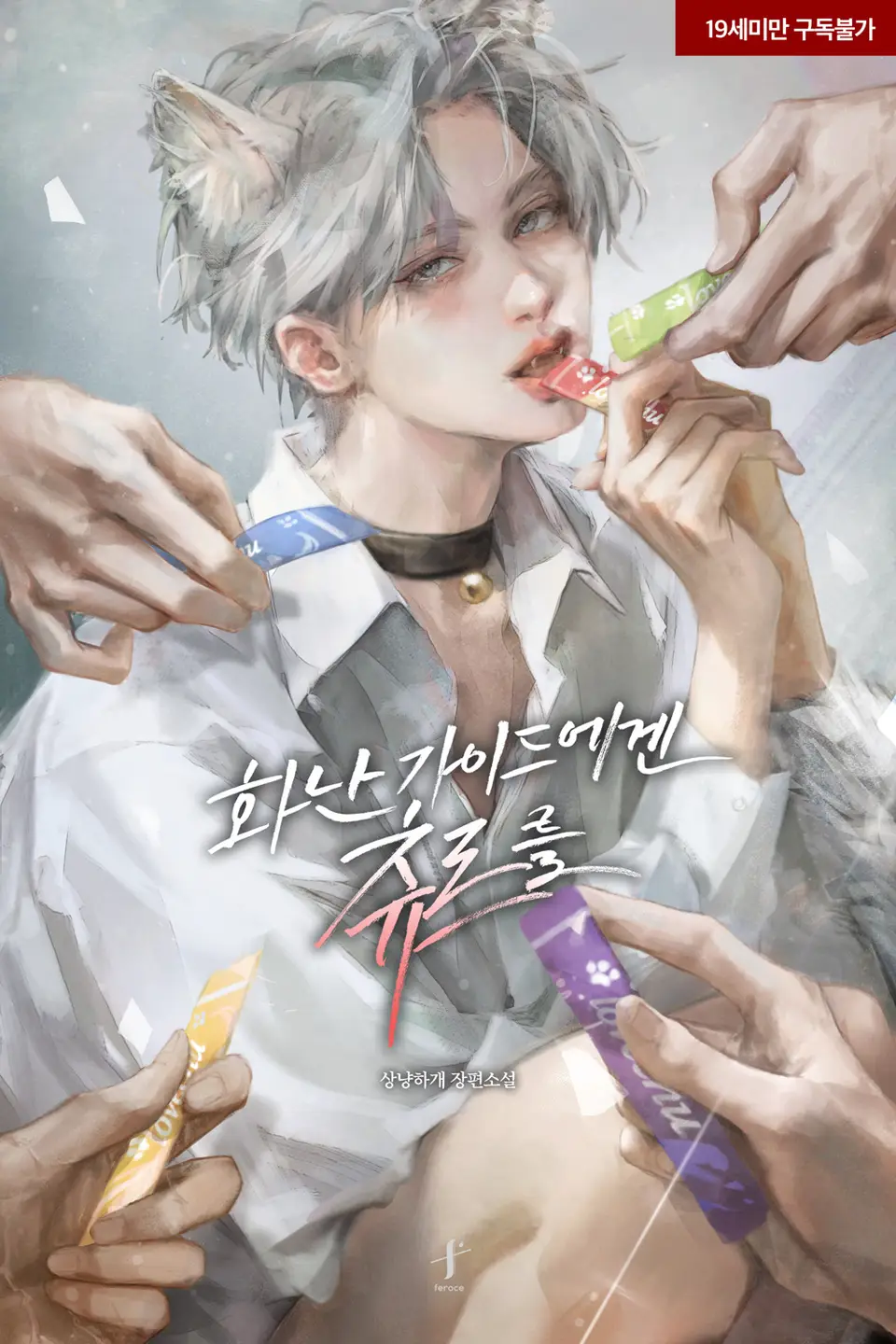If all roads lead to Rome, then no matter the path, perhaps Seoul is forever out of reach.
***
(Excerpt)
The term Hero was first coined by a high-ranking temple official of that era. Before then, people referred to heroes as “Vanquishers of Evil,” “Great Ones,” “Saviors of Good Citizens,” or “Those Closest to the Divine.”
These expressions reflected how people viewed heroes at the time. Heroes weren’t seen as ordinary individuals. The admiration people felt toward them bordered on reverence—so much so that even as they respected and longed for them, they dared not emulate them.
Even those who harbored lustful desires for heroes couldn’t muster the courage to make a move. During the peak of public fascination, there were as many as five hundred young people—men and women in near equal numbers—who prostrated themselves in front of the temple, begging for a night with the Hero.
(Omitted)
The Hero’s name, age, and even gender remain entirely unknown. Similarly, no records exist regarding the Hero’s past deeds. This absence of information appears to be a deliberate omission across all accounts related to the Hero. Those close to the Hero seemingly excluded any details that weren’t tied to achievements, fearing it would tarnish their authority. They believed that once the Hero’s human side was exposed, people would inevitably begin to entertain impure thoughts.
But that once-reverent awe has faded with time. In the present age, people openly question whether the Hero ever truly existed. The lack of information, once a shield of veneration, has become the very basis for denial. Some even argue that all records of the Hero are nothing more than propaganda orchestrated by the temple.
Others assert that while the Hero may have existed, their feats were fabricated. These radical theorists claim that the Demon King was never evil to begin with, but part of a divine scheme. According to this view, the gods intentionally sent down the Demon King to act as a foil to their chosen champion—because humanity needed a symbol to rally behind. If that were true, the so-called subjugation of the Demon King was nothing more than a staged drama.
What’s especially interesting is that those who advocate this view are not anti-temple. In fact, they are often devout believers who emphasize that during the era of Hero worship, there were no natural disasters or wars. For this reason, the temple does not take offense at their stance. They believe that interpreting the will of the gods is a right granted to all, and as long as the conclusions are not malevolent, it does not constitute a sin.
(Omitted)
No one knows which of these opinions—if any—is correct. Perhaps there is no correct answer. However, if a Hero were to appear once again in the modern era, one thing would become clear:
Does the Hero truly bring peace?
—From Treatise on Heroes
***
“I guess this is goodbye.”
“Yes, it seems so.”
“I’m not that sad, but… a little, maybe.”
“Could you at least try to say something that makes sense front to back?”
“Aren’t you gonna miss me? After all, we did go through a lot together.”
“I never said I wouldn’t miss you.”
Rita and Edward were bickering like usual, but there was a hint of wistful affection beneath it all. Whether it was the bond forged through shared hardships, or something else entirely, Satin couldn’t say for sure.
‘No, actually… I think I know.’
If it weren’t for their statuses—Princess and Priest—they’d probably already be a couple by now. Satin had never been in a relationship himself, but he wasn’t so clueless that he couldn’t read the signs.
That subtle tension between them was growing heavier with each passing second. Even right now.
‘Folks, come take a look at this trainwreck of a couple not becoming official…’
Annoyed for some reason, Satin stared at the pair with a sour expression. He kept feeling this urge to mess things up between them. On the other hand, Cain asked casually, without a shred of interest:
“Are you gonna keep standing around here?”
Cain didn’t seem the least bit concerned about what his possible future wife and would-be best friend were up to. His face showed nothing but thinly veiled boredom, as if just standing there beside them was already wearing on him. He urged Satin again.
“I said, are you staying here or what?”
Satin gave a sheepish smile and replied.
“I should at least say goodbye.”
Strictly speaking, Cain was also one of the people Satin needed to bid farewell to. Yet Cain acted as if Satin would obviously be tagging along with him.
Satin chose not to point that out just yet and instead walked over to Rita and Edward. It was only upon seeing him that the two seemed to remember they were in the middle of saying goodbye.
“Oh, take care, Satin. That leech over there…”
Rita shook her head as she glanced at Cain. Her expression was that of someone scolding a mischievous child, though from Cain’s perspective, Rita was probably the noisy one.
She didn’t seem interested in prolonging the conversation about Cain, so she simply shrugged it off.
“Well, he’ll at least play bodyguard. I hope you get home safe.”
“Yeah, thanks. I hope nothing unexpected happens on your journey either.”
After exchanging kind words with Rita, Satin gave Edward a brief farewell as well.
“I suppose this is goodbye for now.”
“Ah, right. You mentioned you had to go on a pilgrimage. Stay safe and healthy.”
“You too, Mr. Satin. And Mr. Cain as well.”
Polite as ever, Edward gave Cain a respectful nod, which the ever-rude Cain barely acknowledged with a half-hearted gesture.
And just like that, their brief bond with new friends came to an end.
“Come on. Let’s go.”
Well—everyone except Cain.
***
Thanks to Rita renting them a private carriage, the trip back home was smooth and comfortable. Unlike their first journey to Cloverland, they didn’t have to squeeze into tight quarters or endure the stale, musky sweat of strangers.
‘No wonder everyone wants to own a carriage.’
While Satin was happily reveling in life’s small pleasures, Cain was staring out the window, lost in deep thought, a furrow between his brows.
“What are you thinking so hard about?”
When Satin asked, Cain lowered the elbow he had propped up against the window. His gaze turned toward Satin—peculiar and unreadable.
“Watching them say goodbye made me think of the past.”
“Ah, I see.”
Satin nodded, assuming it was about some memory unrelated to him. But then Cain spoke again, his expression growing faintly wistful.
“If things hadn’t gone wrong back then… would we have just ended like that too?”
‘That wasn’t me you’re remembering.’
“If that were the case, would I even be having these thoughts now?”
‘Whatever those thoughts are, I’m telling you—they’re not about me.’
“I feel like a dog.”
‘You’ve always been more of a cat-type, though.’
Satin stayed silent, not offering a single response. Cain let out a quiet sigh and turned his gaze back to the window.
The carriage, having departed Cloverland early, arrived in their village by dusk—sooner than expected. Since the village didn’t have an inn, the coachman said he’d rest in the nearest town and return the next day.
“I’d like to grab a bite before heading out, but I’m not sure if there’s a restaurant around here.”
The coachman looked around uncertainly. As a local, Satin stepped in to help.
“See that tree over there? The restaurant’s just beside it.”
The village’s one and only eatery didn’t have a sign, making it nearly impossible for outsiders to identify.
Satin watched the carriage slowly veer in the direction of the restaurant, then turned and headed home himself. For some reason, Cain, walking beside him, looked displeased.
‘Is he tired?’
Though the trip had been comfortable enough, that didn’t mean it hadn’t been tiring. Satin figured he’d let Cain have the bed tonight.
But unaware of Satin’s considerate thoughts, Cain voiced his complaint.
“This place sucks.”
“Huh?”
“I said this village sucks.”
Well, sure—compared to Cloverland, it would. There were no grand temple buildings, no gleaming cobblestone streets. And with such a small population, the roads were nearly empty around mealtime like this.
Still, Satin rather liked it here. This village was a near-fantastical version of the countryside—idyllic in almost every way.
The people were kind but never invasive, the seasons were distinct but never extreme—no blizzards, no scorching heat. The villagers lived nearly self-sufficiently, but they still received external goods when needed. Spices and seasonings were in ample supply.
Cain had probably lived his entire life in the city, which might explain why he couldn’t appreciate the charm of rural life.
‘There aren’t even mosquitoes here…’
Satin had been deeply worried during his first summer in the village. What if palm-sized forest mosquitoes attacked him? What would he do if he got itchy with no ointment?
But all those fears were unfounded. There were no mosquitoes here. There were bugs, sure, but none that bit people. Or maybe Satin just hadn’t encountered any biting ones yet—but at least up till now, he’d never suffered from any insect problems.
In fact, he’d seen more gnats in Cloverland.
Satin grumbled inwardly.
‘This place is every modern person’s countryside fantasy come true. Rural life dream, accomplished.’
Someday, Cain would come to appreciate the charm of this place.
‘Or maybe he’ll leave before that ever happens.’
Sure, he was on edge now because of the painful memories of how things ended before, but that wouldn’t last forever. In time, once Satin’s presence became natural—familiar—the obsessive need to monitor his every move up close would fade away, too.
Thinking of their time together as something temporary made it all easier to bear.
‘Or maybe he’ll get sick of it and leave even sooner.’
This slow-paced country life where nothing ever happened—it might wear thin. After all, Cain was just twenty, right in the prime of his youth. It wouldn’t be surprising if he got bored of a lifestyle where the biggest incident was a deer (or possibly a water deer) trampling the vegetable garden.
With Cain still wearing that sour expression, Satin led the way out of the village. His cabin was set a bit apart from the other homes.
“Where are we going? Planning to camp out in the woods or something?”
“Haha, of course not.”
Satin laughed awkwardly. Cain, clearly displeased, kept glancing around as though expecting something to jump out at him.
“You sure there’s even a real house—”
His muttered complaint cut off the moment he saw the cabin. The look on his face—with his mouth hanging open—wasn’t exactly one of admiration.
A few seconds passed in silence before Cain finally asked,
“…That’s the house?”














que criticón (yo ese en el campo) pero entiendo a Satin, aunque no me guste el campo es tranquilo la mayoría del tiempo y lo reconozco, es un pro
Cain’s reaction is hilarious i wanna see the adaptation ver of manhwa lmao